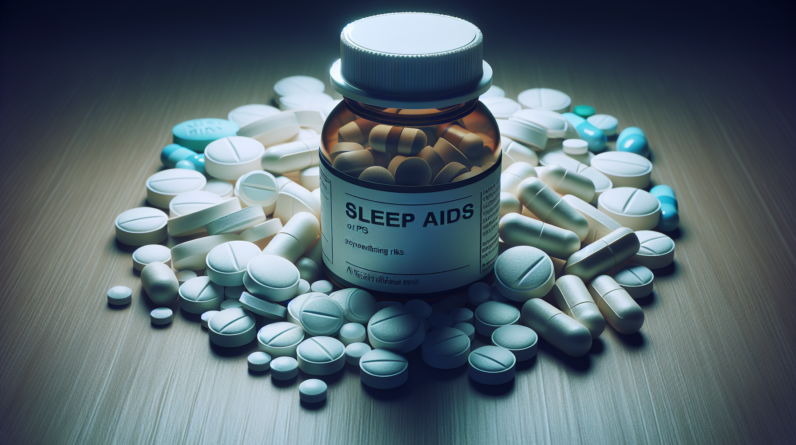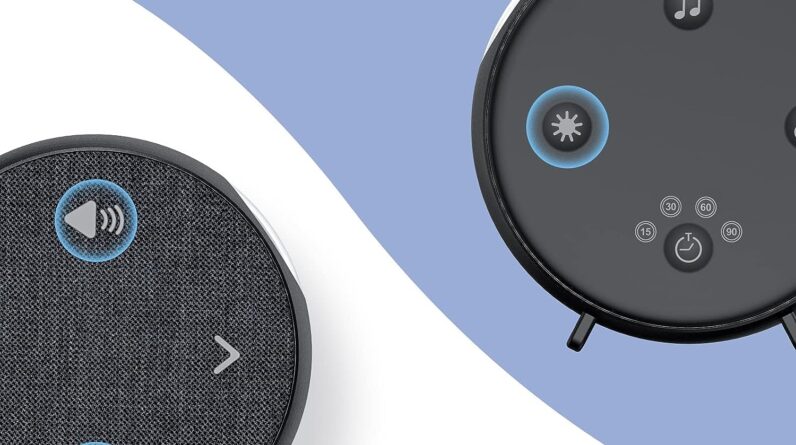
Can sleep aids enhance the quality of your sleep? If you’ve ever struggled to get a good night’s sleep, you may have wondered if sleep aids can actually enhance the quality of your rest. It’s a common question among those seeking a way to improve their sleep patterns, but before diving into the world of sleep aids, it’s important to understand their potential benefits and limitations. In this article, we’ll explore whether sleep aids can truly deliver on their promises of better sleep quality, so you can make an informed decision about how to improve your own sleep.
Table of Contents
What are sleep aids?
Definition of sleep aids
Sleep aids are substances or techniques that are used to improve sleep quality and duration. They can help individuals who struggle with falling asleep, staying asleep, or waking up too early. Sleep aids can be in the form of medications, both prescription and over-the-counter, as well as natural remedies and lifestyle modifications.
Types of sleep aids
There are several types of sleep aids available that can help improve sleep quality. These include prescription medications, over-the-counter medications, and natural sleep aids. Each type has its own benefits and considerations, depending on an individual’s specific sleep needs and preferences.
Modes of administration
Sleep aids can be administered in different ways, depending on the type of aid. Prescription medications are typically taken orally, in the form of pills or capsules. Over-the-counter medications can also be taken orally, but they may also come in the form of liquids or chewable tablets. Natural sleep aids can be taken orally as supplements, or they may involve lifestyle changes or relaxation techniques.
Can sleep aids enhance the quality of your sleep? Effects of sleep aids on sleep quality
Short-term effects
Sleep aids can have immediate positive effects on sleep quality. They can help individuals fall asleep faster, improve the quality of sleep, and reduce awakenings during the night. Short-term use of sleep aids can provide temporary relief for sleep issues and promote a more restful night’s sleep.
Long-term effects
For some individuals, long-term use of sleep aids may lead to a decrease in their effectiveness. The body can develop a tolerance to certain medications, requiring higher doses for the same effect. Additionally, long-term use of sleep aids may not address the underlying causes of sleep issues, such as stress or medical conditions. It is important to regularly reassess the need for sleep aids and explore other options for improving sleep quality.
Potential risks and side effects
While sleep aids can be effective in improving sleep quality, they may also come with potential risks and side effects. Common side effects include drowsiness, dizziness, and gastrointestinal issues. Some sleep aids may also cause dependency or addiction if used improperly or for an extended period. It is important to carefully consider the potential risks and consult with a healthcare professional before starting any sleep aid regimen.
Common sleep aids
Prescription medications
Prescription sleep aids are medications that require a doctor’s prescription. They are typically used for more severe or chronic sleep issues. Some common prescription sleep aids include benzodiazepines, non-benzodiazepine sedatives, melatonin receptor agonists, anti-depressants, and antihistamines. These medications work in different ways to promote sleep and improve sleep quality.
Over-the-counter medications
Over-the-counter sleep aids are available without a prescription and can be purchased at most pharmacies or drugstores. These medications typically contain diphenhydramine or doxylamine succinate, which are sedating antihistamines. They can help individuals with occasional sleep difficulties or mild sleep issues. They should be used as directed and for short-term relief, as long-term use may not be as effective.
Natural sleep aids
Natural sleep aids are non-medical remedies that can help promote better sleep. They often focus on lifestyle changes, sleep hygiene practices, relaxation techniques, and natural supplements. Some common natural sleep aids include valerian root, melatonin supplements, and herbal teas. These natural remedies can provide a gentle and non-habit-forming approach to improving sleep quality.
Prescription sleep aids
Benzodiazepines
Benzodiazepines are a class of medications that act as sedatives and can be prescribed to help individuals with sleep difficulties. They work by enhancing the effects of a neurotransmitter called gamma-aminobutyric acid (GABA), which helps calm the brain and nerves. Examples of benzodiazepines commonly used as sleep aids include diazepam, lorazepam, and temazepam.
Non-benzodiazepine sedatives
Non-benzodiazepine sedatives, also known as Z-drugs, are a newer class of medications that can help individuals with sleep issues. They work by targeting specific receptors in the brain to induce sleep and help individuals stay asleep through the night. Commonly prescribed non-benzodiazepine sedatives include zolpidem, eszopiclone, and zaleplon.
Melatonin receptor agonists
Melatonin receptor agonists mimic the effects of the hormone melatonin, which is naturally produced by the body to regulate sleep-wake cycles. These medications can help individuals with circadian rhythm disorders or difficulty falling asleep. Popular melatonin receptor agonists include ramelteon and tasimelteon.
Anti-depressants
Some anti-depressant medications, such as trazodone, amitriptyline, and doxepin, can also be prescribed off-label to help with sleep issues. These medications can help improve sleep quality, particularly for individuals with co-existing depression or anxiety disorders. However, they should be used under a healthcare professional’s guidance and monitoring.
Antihistamines
Certain antihistamine medications, such as diphenhydramine and doxylamine succinate, can also be prescribed in higher doses to promote sleep. These medications have sedating effects and are commonly found in over-the-counter sleep aids as well. They should be used with caution, as higher doses may cause drowsiness and potential side effects.
Over-the-counter sleep aids
Diphenhydramine
Diphenhydramine is a sedating antihistamine commonly found in over-the-counter sleep aids. It works by blocking histamine receptors in the brain, leading to drowsiness and promoting sleep. While it can be effective for occasional sleep difficulties, it may cause drowsiness the next day and is not recommended for long-term use.
Doxylamine succinate
Doxylamine succinate is another sedating antihistamine that is commonly found in over-the-counter sleep aids. It acts in a similar way to diphenhydramine by blocking histamine receptors and inducing sleepiness. Like diphenhydramine, it should be used as directed and for short-term relief.
Valerian root
Valerian root is a natural herbal sleep aid that has been used for centuries to promote relaxation and sleep. It is available in capsule, tablet, or liquid form and is believed to work by increasing levels of gamma-aminobutyric acid (GABA) in the brain, thus promoting a calm and relaxed state. Valerian root is generally considered safe, but it may take several weeks to see its full effects.
Melatonin supplements
Melatonin is a hormone naturally produced by the body in response to darkness, signaling the need for sleep. Melatonin supplements can help individuals regulate their sleep-wake cycles and promote better sleep quality. They are available in various strengths and formulations, and should be taken about 30 minutes before bedtime for the best effect.
Herbal teas
Certain herbal teas, such as chamomile, lavender, and passionflower tea, have calming properties that can help induce a state of relaxation and improve sleep quality. These teas can be enjoyed in the evening as part of a bedtime routine and can complement other sleep aids or relaxation techniques.
Natural sleep aids
Lifestyle changes
Making certain lifestyle changes can significantly improve sleep quality. These include adopting a regular sleep schedule, creating a comfortable sleep environment, avoiding stimulating activities close to bedtime, and practicing relaxation techniques. Incorporating these changes into daily routines can have a positive impact on sleep patterns and overall well-being.
Sleep hygiene practices
Good sleep hygiene practices involve establishing healthy habits and routines that promote restful sleep. This includes sticking to a consistent sleep schedule, creating a conducive sleep environment, avoiding napping during the day, and limiting caffeine and alcohol intake. Practicing good sleep hygiene can help regulate the body’s sleep-wake cycle and improve sleep quality.
Relaxation techniques
Relaxation techniques, such as deep breathing exercises, progressive muscle relaxation, and guided imagery, can help calm the mind and promote relaxation before sleep. These techniques can be practiced individually or with the assistance of audio recordings or apps that guide individuals through the relaxation process. Incorporating these techniques into a bedtime routine can signal the body to prepare for sleep.
Natural supplements
In addition to herbal teas and melatonin supplements, there are other natural supplements that may aid in improving sleep quality. These include magnesium, chamomile extract, lavender oil, and passionflower extract. It is important to consult with a healthcare professional before starting any new supplements, as they may interact with other medications or have contraindications.
Factors to consider before using sleep aids
Underlying conditions
Before using any sleep aids, it is important to consider if there are underlying medical or psychological conditions that may be contributing to sleep difficulties. Sleep issues can be caused by conditions such as sleep apnea, insomnia, restless legs syndrome, or mood disorders. Treating the underlying condition may alleviate the need for sleep aids or help determine the most appropriate type of aid to use.
Other medications
Certain medications can interact with sleep aids, either enhancing or decreasing their effectiveness. It is important to inform a healthcare professional about any other medications you are taking, including prescription, over-the-counter, or herbal supplements. They can then provide guidance on the potential interactions and adjust the sleep aid regimen accordingly.
Dependency and addiction potential
Some sleep aids, particularly prescription medications, can have the potential for dependency or addiction if used improperly or for an extended period. It is important to use sleep aids as directed and for the recommended duration. If dependence or addiction becomes a concern, it is crucial to seek professional help to safely taper off the medication and explore alternative sleep solutions.
Personal preferences
Different individuals may have different preferences when it comes to sleep aids. Some may prefer natural remedies, while others may prefer the convenience of over-the-counter medications or the strength of prescription sleep aids. Personal preferences can play a role in selecting the most suitable sleep aid, and it is important to consider what aligns with individual comfort and values.
Alternative approaches for improving sleep quality
Cognitive Behavioral Therapy for Insomnia (CBT-I)
Cognitive Behavioral Therapy for Insomnia (CBT-I) is a structured and evidence-based approach that focuses on identifying and changing negative thought patterns and behaviors associated with sleep difficulties. CBT-I helps individuals develop healthy sleep habits, improve sleep hygiene, and address underlying factors contributing to sleep issues. It can be as effective, if not more, than medication alone in improving sleep quality.
Sleep restriction
Sleep restriction is a technique that involves temporarily limiting the amount of time spent in bed to match the actual amount of sleep obtained. This technique aims to consolidate sleep and increase sleep efficiency. It may involve gradually increasing the allowed sleep time as sleep efficiency improves. Sleep restriction can be part of a comprehensive treatment plan for insomnia, and it is best done under the guidance of a healthcare professional.
Light therapy
Light therapy involves exposing individuals to specific types of light to regulate the sleep-wake cycle. It is particularly useful for individuals with circadian rhythm disorders, such as delayed sleep phase disorder or shift work disorder. Light therapy typically involves exposure to bright light in the morning and avoiding bright light in the evening. It can be an effective adjunct to sleep aids or used as a standalone treatment.
Exercise and physical activity
Engaging in regular physical activity and exercise can have positive effects on sleep quality. Physical activity helps reduce stress, regulate hormones, and tire the body, making it easier to fall asleep and stay asleep. However, it is important to avoid vigorous exercise close to bedtime, as it may have a stimulating effect on the body. Finding an exercise routine that suits individual preferences and abilities can contribute to overall better sleep.
Mindfulness and meditation
Practicing mindfulness and meditation techniques can help calm the mind, reduce stress, and promote relaxation before sleep. Mindfulness involves focusing on the present moment and accepting thoughts and feelings without judgment. Meditation can take different forms, such as guided meditation, deep breathing exercises, or progressive muscle relaxation. Incorporating these practices into a bedtime routine can help individuals unwind and prepare for a restful sleep.
How to make the most out of sleep aids
Follow recommended dosage and instructions
It is crucial to carefully follow the recommended dosage and instructions provided with any sleep aid. Taking more than the recommended dose can increase the risk of side effects, while taking less may result in a lack of effectiveness. If there are any uncertainties or questions, it is important to consult with a healthcare professional before starting or adjusting the sleep aid regimen.
Avoid long-term continuous use
Unless specifically recommended by a healthcare professional, it is generally advisable to avoid long-term continuous use of sleep aids. Continuous use can lead to tolerance, dependency, and decreased effectiveness. Sleep aids should be used as a temporary solution for sleep issues, while addressing any underlying factors that may contribute to sleep difficulties.
Combine with lifestyle modifications
Sleep aids can be more effective when used in conjunction with lifestyle modifications and healthy sleep habits. This may include adopting a regular sleep schedule, creating a comfortable sleep environment, practicing relaxation techniques, and limiting caffeine and alcohol intake. Combining sleep aids with these lifestyle modifications can enhance their effectiveness and promote long-term improvements in sleep quality.
Consult with a healthcare professional
Before starting any sleep aid regimen, it is recommended to consult with a healthcare professional. They can provide guidance on the most appropriate type of sleep aid based on individual needs and preferences. They can also evaluate for any underlying conditions or factors that may be contributing to sleep difficulties and provide a comprehensive treatment plan that considers the whole person.
Conclusion
Sleep aids can be helpful for improving sleep quality and providing temporary relief for sleep difficulties. They come in different forms and can range from prescription medications to over-the-counter options and natural remedies. Understanding the different types, effects, and risks of sleep aids is important in making an informed decision about their use. It is also essential to consider alternative approaches and lifestyle modifications that can complement sleep aids and contribute to long-term improvements in sleep quality. Consulting with a healthcare professional is recommended to ensure safe and effective use of sleep aids and personalized treatment. With the right combination of sleep aids and lifestyle modifications, a good night’s sleep can become a regular occurrence, promoting overall well-being and quality of life.





